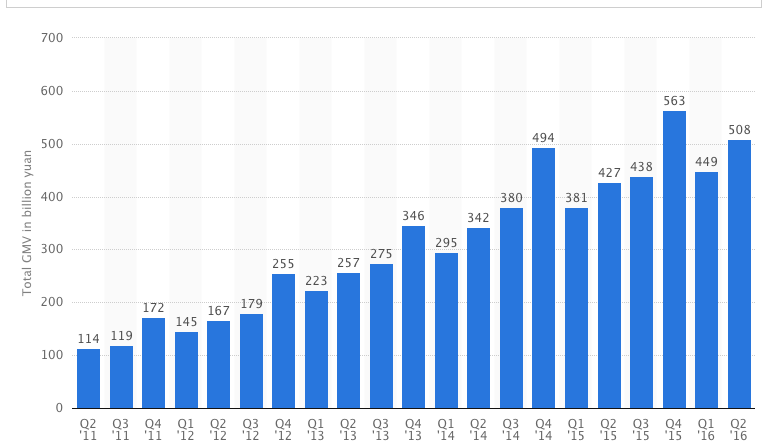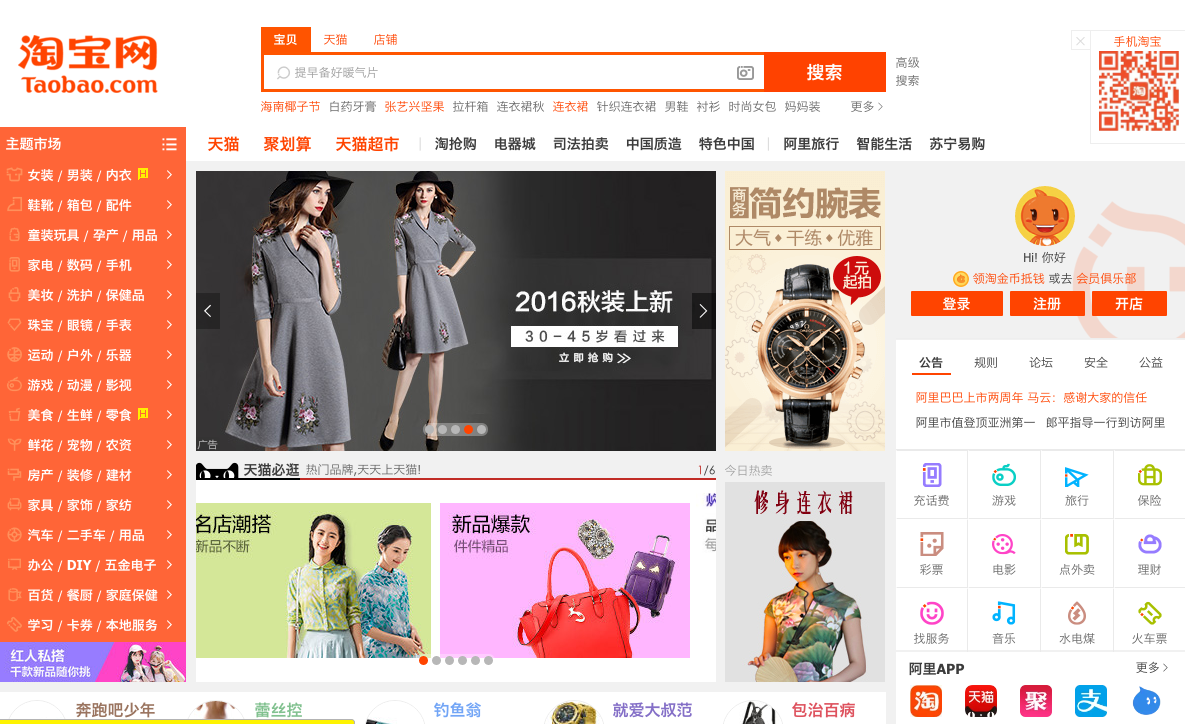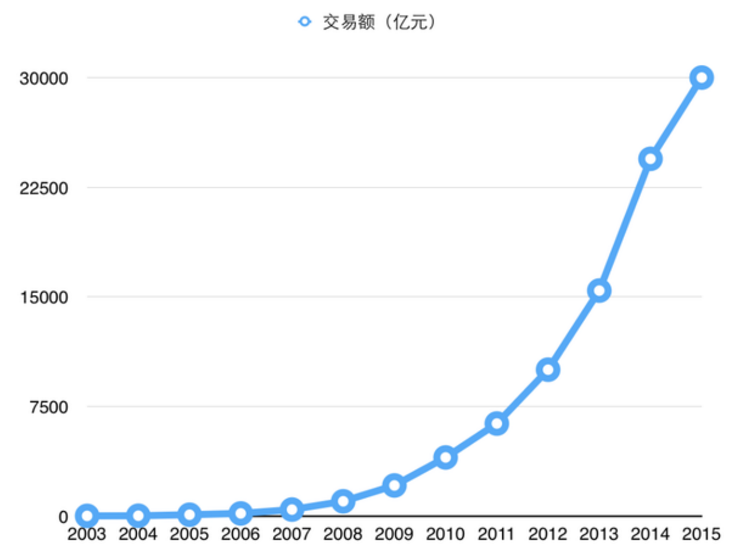If you haven’t heard of Taobao, you’ve at least heard of Alibaba. Operated by Alibaba, Taobao is the number one online marketplace in China. The founder, Jack Ma, was so ambitious that he wanted business for everybody. So he created an online platform in order to deliver C2C business (with a B2C branch called T-Mall). Taobao leads the e-commerce business in China, but also led a major battle between e-commerce and physical retails.
Taobao was founded in 2003; it was doing alright during the first a few years, but the sales volume really started to grow massively since 2011. Its 2015 annual sales volume was ¥3 trillion, which was more than triple to 2011, and the 2011 annual volume was already larger than the first five years combined.
Source: Taobao, 2015 annual sales volume 3 trillion yuan

Source: Statista
Take a guess. How long did it take for this online marketplace to generate ¥1 billion volume (approximately $150,000,000) on 2015’s “Singles’ Day Nov. 11th” (the Chinese version of Black Friday)? Seventy-two seconds. The sales number bumped up to $1.5 billion within 13 minutes, and by the end of that day, Taobao reported the final sales number to be $14.3 billion.
A lot of people have been criticizing Taobao, for “destroying” the physical retail business. Of course, Taobao is the inventor of this shopping culture, but this is the money people would have otherwise spent in physical stores.
But we can’t blame the consumers. One of the biggest advantages you get from shopping on Taobao, is that you can buy good value products within a very reasonable price range. We’re buying products made in China in the U.S., because they are cheaper. But surprisingly, the same products often are sometimes more expensive in China. Because although labor in China is rather inexpensive compares to western countries, the cost of housing and rent is scary. In order to remain in business, many retail stores raise the price of their products. You might find a jacket with a brand you’ve never heard of in a random street shop, and it costs more than $150, whereas you can get a very similar jacket on Taobao for less than $50. Now, more and more consumers go to the physical stores to check out the products, and then go home and shop on Taobao, or other similar sites. This leads to a lot more problems. For example, many retailers stopped renewing their leases and turned to online selling, which causes challenges for shopping malls and shopping districts.
However, can we blame Taobao for starting an unfair market competition? Not really. After all, the cost of making a product is still relatively low. Would physical stores become just a testing site for the consumers?


Leave a Reply
You must be logged in to post a comment.